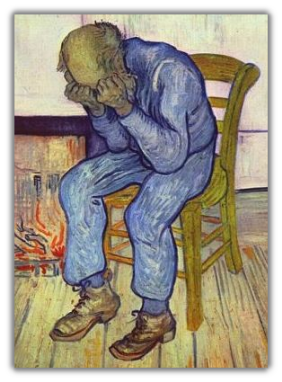Giovanna Spantigati
The illness of this century
My Articles
I met Dr. Salvatore Di Salvo two years ago in Turin while working at a television program which dealt with social issues. We were recording an episode about "Anxiety, depression and panic attacks."
Salvatore Di Salvo, President of the Association for Research on Depression and Anxiety and Managing Director of the Depression, Anxiety and Panic attacks Center in Turin, spoke in simple and exhaustive terms of what is generally called: the illness of this century. I think it is important to write a series of articles (collecting information from Dr. Di Salvo's Center) to focus on this touchy subject because unfortunately either it is underestimated, or too many other categories of doctors claim the right to make diagnosis and prescribe drugs not having the necessary skills. First, it should be noted that drug therapy alone cannot solve the problem, and that this should strictly be accompanied by a correct diagnostic workup.
For example, the general practitioner cannot cure depression.
The same for the neurologist. In fact, the therapy should not be confused with neurological therapy, psychiatric therapy, or with the psychotherapy. Neurology is concerned with the wide range of organic diseases of the nervous system and not with the psychological consequences of the diseases themselves.
The psychological consequences are dealt psychiatrically in cases of major mental illness, and by psychotherapy in cases of moderate injury. It should also be mentioned that there is an alarming rise in cases of depression, anxiety and panic attacks in young people.
Dr. Di Salvo is also involved in conferences for giving correct information to young people in their last high school year in the province of Turin.
Furthermore, the risk of abuse of psychotropic drugs by young people is a threat which we cannot undervalue and not only because it creates dependency, but also because the side effects in a young body are completely different from those in adults or in elderly people. End Part One.
For info: www.depressione-ansia.it
Giovanna Spantigati


